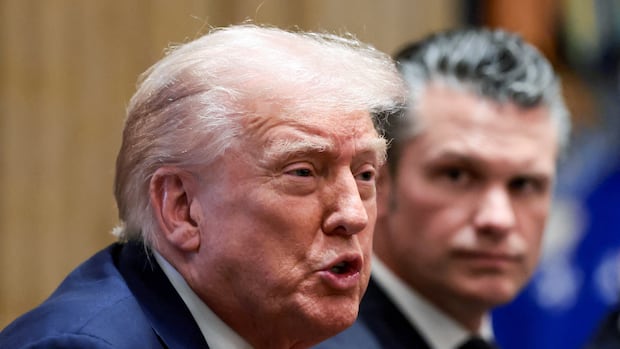Ravina Shamdasani, spokesperson for UN High Commissioner for Human Rights, calls strikes 'unacceptable,' says U.S. must halt them immediately.
The UN High Commissioner for Human Rights and the newest Nobel Peace Prize laureate, a Venezuelan, have weighed in — in dramatically different fashion — about deadly U.S. strikes on alleged drug-carrying boats.
The strikes on small boats and at least one submersible that began on Sept. 2 have killed at least 61 people and left at least two survivors. The first several strikes occurred near Venezuela and Trinidad and Tobago, a known drug route transshipment point.
Defence Secretary Pete Hegseth has since announced five that have taken place somewhere in the eastern Pacific.
Here's the latest on the situation:
What is the administration saying?
The Trump administration, in a notice to Congress that is required under the War Powers Act, said the military is engaged in "a non-international armed conflict" and that those on the drug-carrying boats can be considered enemy combatants. The administration cites hundreds of thousands of drug toxicity deaths in the U.S. in recent years, even as most American consumers of drugs are willing buyers.
The U.S. has alleged that the Cartel de los Soles is a terrorist entity under the auspices of Venezuelan President Nicolás Maduro, and that the cartel provides material support to the Tren de Aragua gang. Maduro denies the allegations.
WATCH | U.S. appears to be on shaky ground, but strikes hard to stop: Why Trump is at war with Venezuela | About That | Duration 13:24 What's President Donald Trump's endgame with repeated U.S.
Continue Reading on CBC News
This preview shows approximately 15% of the article. Read the full story on the publisher's website to support quality journalism.
